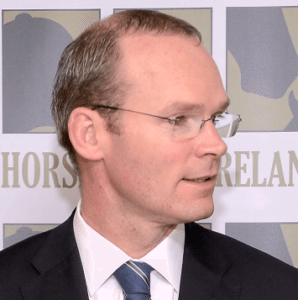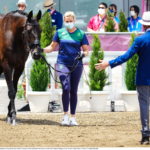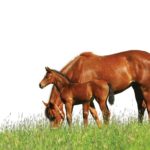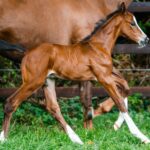NEW ANIMAL WELFARE MEASURES ANNOUNCED AT CONFERENCE IN DUBLIN CASTLE
- 17 May 2014, 10:30
AT THE opening of the Animal Welfare Conference held in Dublin Castle yesterday, the Minister for Agriculture, Food and the Marine, Simon Coveney, TD said that he hoped that the Conference will help to highlight the importance of animal welfare in all of its aspects as well as the role of the various stakeholders, including the many animal welfare organisations present, in promoting the welfare of animals.
The Minister also announced a number of measures in the context of this conference:
(i) New Horse Regulations signed into law
(ii) A review of the Control of Horses Act
(iii) New Stallion Castration initiative
(iv) Final consultation phase on dog micro chipping will commence in the coming weeks
(v) The drafting code of practice for circus animals
(vi) Invitation for proposals from interested organisations in relation to urban horse projects
New Horse Regulations signed into law by the Minister
In the context of the conference, the Minister announced that he has signed into law important new regulations concerning the identification and change of ownership of horses. The new regulations on equine identification, which will come into effect immediately, will consolidate existing regulations on the identification of horses and will strengthen the powers of the Minister in relation to the seizure and detention of horses and documents. They also include a provision for the issuing of compliance notices in situations where equine identification legislation is not being observed.
The Minister stated “Current legislation provides that all equine animals must be identified and those equines identified on or after 1st July 2009 must be issued with a passport and must have a corresponding microchip implanted by a veterinary surgeon. Any person in possession of an equine is legally responsible to ensure the correct identification of that animal. All those involved with equines should be aware of their responsibilities and must abide by the law”.
Minister Coveney has also recently signed new regulations relating to the notification of the transfer of ownership of horses which will come into effect on 1 July next. Under these regulations, a person transferring the ownership of an equine to another person will be required to make a declaration in writing that he or she has transferred ownership of the equine to the new owner and give both the declaration and the equine passport to the new owner.
Commenting on the new regulations, the Minister said that his Department has overseen much work in the tightening of controls on the identification and traceability of horses in the last 2 years. The new Regulations complement legislation on the registration of horse premises which was introduced in 2012. A central equine database was developed in 2013 to record all equine animal registration details on the Department’s Animal Identification and Movement (AIM) system. Official veterinarians operating at the slaughter plants use the central database to supplement ante-mortem checks, prior to approving the slaughter of any animal for the food chain.
Minister Coveney stressed the importance of equine identification and traceability both in terms of animal health and welfare and in the preservation of the integrity of the food-chain. The Minister said that “consumer confidence and trust are vital components in the success of the Irish food industry. Ireland’s reputation as a quality food-producing country depends on all participants, from primary producers to retailers, fulfilling their responsibilities to ensure that only safe, quality food products are placed on the market. Animal identification and traceability form the cornerstones of our obligations in this regard. In addition, the enhanced traceability of horses which will flow from the new regulations will significantly improve our ability to trace and control any disease outbreak in the horse sector and thereby help to protect a very valuable industry”.
Control of Horses Act Review
The Minister said that in view of the introduction of a series of legislative measures in the equine area in recent years it was time to review the Control of Horses Act, particularly in view of recent legislation on Animal Health and Welfare, the identification of horses and equine premises. The Control of Horses Act had addressed the serious health and safety issues arising from the urban horse problems of the mid 1990’s. The Minister noted that some Council areas had excelled in their implementation of the Act. Unfortunately, others had not and much more use should have been made of the licensing and exclusion measures in the 1996 Act. The Minister said that the review will involve a short consultation period in advance of the summer holidays. The Minister requested that all those with an interest in horse welfare to input their ideas into the consultative process.
Stallion Castration initiative
The Minister confirmed that his Department will also offer assistance to Welfare Organisations who introduce initiatives that will facilitate the micro chipping, passporting and castration of stallions at a reduced price to owners. It was vital that those types of initiatives were progressed with a view to bringing about more sustainable breeding of equines. The Minister complimented charity groups like Hungry Horse Outside for their efforts in the midland regions and he looked forward to a more proactive approach by other horse charities in undertaking such initiatives.
Dog Micro chipping
The Minister confirmed that the final consultation phase on dog micro chipping will commence in the coming weeks with the publication of the draft Statutory Instrument. Dog Micro chipping will be compulsory from 1 January 2016.
Circus Animals
The Minister confirmed that his Department has recently undertaken a series of consultations with stakeholders on the issue of the use of animals in circuses. Arising from this consultation, a draft code of practice is being drawn up. This code will be complemented by unannounced inspections by his Departments personnel. This is a major piece of legislation replaces a wide range of Acts relating to animal health and welfare dating back over a century. Two of the major pieces of legislation being replaced are the Diseases of Animals Act 1966 and the Protection of Animals Acts 1911 and 1965.
Dunsink Horse Project
Recalling his recent visit to the Dunsink Horse Project, the Minister complimented all those involved in setting up the project some years ago. Fingal County council, the Irish Horse Welfare Trust and the local owners in the Fingal area deserve huge credit for their work in improving horse welfare and, through an education programme, imparting critical skills to a new generation of horse owners. The Minister added that the Dunsink project has been extremely beneficial in reducing the numbers of welfare compromised animals in Dublin, especially in the Dublin City Council area. He added “In view of this extremely positive development, my Department will be inviting proposals from interested organisations with a view to offering some financial support to enable a number of project to proceed”.
Concluding, the Minister said that he and his Department and other relevant agencies would endeavour to ensure that the welfare of animals was protected and the new Animal Health and Welfare Act, along with the new legislation on equine identification and transfer of ownership, contained provisions which would facilitate the more effective implementation of animal welfare legislation.
New regulations
Under the new regulations relating to the transfer of ownership of horses, which will come into effect on 1 July next, a person transferring the ownership of an equine to another person will be required to make a declaration in writing that he or she has transferred ownership of the equine to the new owner and give both the declaration and the equine passport to the new owner. The person acquiring ownership of an equine will be required to complete and sign the declaration made by the seller and, within 30 days, forward the declaration to the body that issued the passport. Where the rules of the issuing body so require, he or she will also be obliged to forward the passport to the issuing body for up-dating. Both the person transferring ownership and the person to whom ownership is transferred must maintain a record of the transfer of ownership of an equine. Passport Issuing bodies will be required to enter the details of the new owner both in its own database and in the Department’s central equine database.
- Popular

- Latest





























